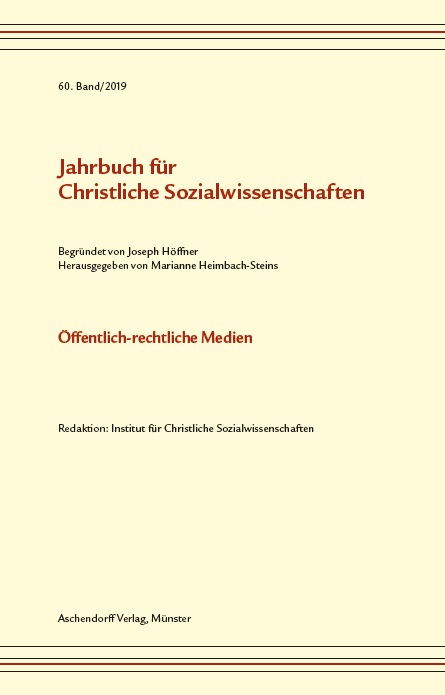Öffentliche Medien als neue Intermediäre der Gesellschaft
Von der Notwendigkeit der Neuinstitutionalisierung öffentlicher Medien
DOI:
https://doi.org/10.17879/jcsw-2019-2501Abstract
Public service broadcasting as part of the journalistic mass media is challenged institutionally, organisationally and programmatically by media technology (streaming platforms, social media, Internet) and social change (individualization, pluralization). Above all, social media platforms influence the provision and dissemination of information such as media usage behavior. In addition, social media enable new forms of individual, group and organizational communication. They allow diverse forms of exchange and collaboration, as well as giving individuals and groups communicative power (influencers). The active, individual media use is possible with social media, but only very limited with the mass media. They suffer a cultural loss of meaning. Social media are expressions like drivers of social change, they reach younger people in particular. Regulation is faced with the challenge of meeting the new media reality: mission statements, the concept of broadcasting, the goals and institutions of broadcasting regulation need to be redrafted and negotiated at European level. The significant market power of the new intermediaries points to the continuing relevance and importance of public service broadcasting. More generally: The publicly funded media sector should be further developed, so in relation to the societal challenges. It is recommended to examine the basics of broadcasting and media policy, to enable more social participation in this policy field. Media policy should be part of societal policy as a communication policy.

